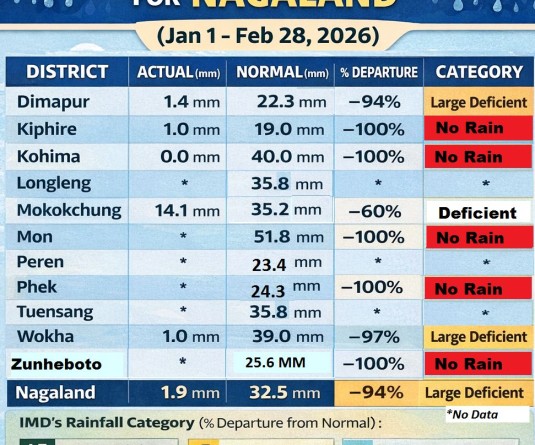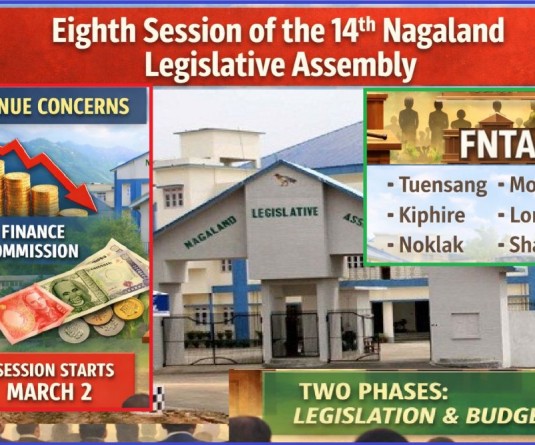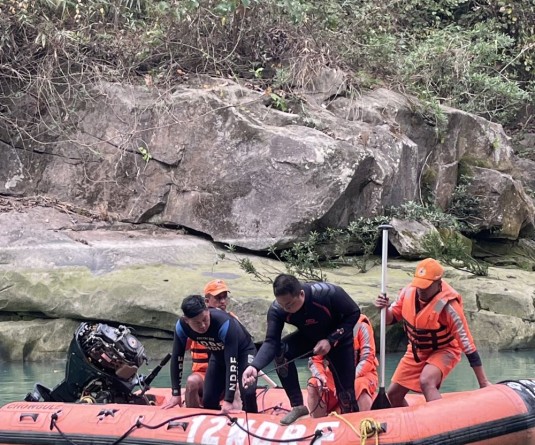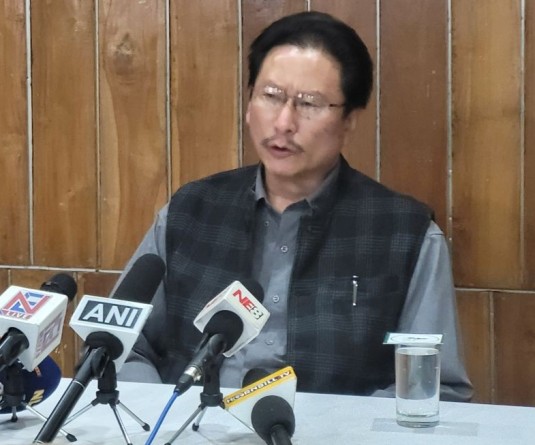
Limabenla Jamir’s passion is exemplified by her initiative
Morung Express Feature
Not many individuals seek to engage young people in decision making or foster participatory governance at the grassroots level or possess a passion to rebuild societies affected by conflicts.
Meet Limabenla Jamir, the person behind North East India International Model United Nations (NEIMUN) – a non-profit educational foundation run by enthusiastic young people which seeks to provide young people a platform to “challenge each other and develop a perspective on social responsibility and optimize their potentiality”.
The Founder & Director of NEIMUN has over the years been actively involved in education and leadership development of young people.
Since inception, NEIMUN has been actively involved in evidence based social research on youth policies and conducts Model UN conferences during which, participants come together to discuss, debate and pass resolutions. One such conference was held recently in Dimapur from October 23 to 24. The conferences are held annually across the region and have seen over 2500 delegates participating from across the country in the past three years.
Possessing a Masters in Applied Social Psychology from the Royal Holloway, University of London, with a major in Political Psychology, Jamir underwent training at the UN HQ in New York under the UN Department of Public Information as part of World Federation of United Nations Associations. She has also trained young people through Model United Nations across UK, South Korea, Italy and India.
In 2014, Jamir was also nominated as a Global Shaper by the World Economic Forum (WEF) and selected as one of the youngest Founding Curator of a Global Shapers Hub. Consequently, she started the Kohima chapter of the Hub following which a network of Hubs developed.
Advocating resilience and youth participation
With a passion to rebuild conflict-affected societies, Jamir is committed to building a resilient society, particularly the youth, ready to face any challenge the community may face.
This, according to Jamir, has been generated from personal experiences as someone born in North East India – which is often termed as an “anthropological paradise” but is besieged with a myriad of unresolved conflicts.
Speaking at a Ted Talk back in September 2016 (Watch here: https://www.youtube.com/watch?v=F-HthzOAiXg), Jamir flashed back to an incident in Mokokchung, when the town’s commercial hub was “set ablaze” by the Indian Army following a conflict with a Naga Political Group (NPG).
The December 27, 1994 incident still runs deep in the memory of the Nagas, and Jamir considers it as the “inspiration for every single thing” she does today.
All her actions are closely related to the passion she had since her childhood – building a resilience society particularly the youth and build to face the challenges of the community.
Out shopping with her parents on that fateful day, Jamir remembers hiding inside a shop for about half an hour when the first gunshot was heard, followed by a series of gunshots.
They were forced to come out of the shop and made to lie down on the road for hours together with thousands of others, she recalls.
“Watching our car burn together with many other cars, hundreds of shops around me in flames, men, women and even a little baby burnt alive, and people shot death – it’s a memory I do not want to relive again,” she adds.
This December experience of mine was never recorded, written or shared before, she continued. “So are the thousands other untold stories of people from my region; of brothers being killed, sisters being raped, parents being shot or kidnapped.”
Driving her points, Jamir said that the region does not talk about these experiences any more. “I look around, and I am not sure whether we have moved on, whether we have forgiven, whether we have accepted our fate, but one thing I learnt living in Nagaland, is the resilience that our people have developed over the years.”
This resilience, she opined, developed with the indigenous communities in Northeast amidst sustaining one of the longest armed conflict in the world. “I believe it comes from our traditional wisdom, the social norms and values that have been passed on from generation to generation.”
Jamir reveals the one value that social norm has helped develop: ‘Social Support’ – a sense of selfless help to family, villagers and the community. This value, she posits, has helped our people to adapt and recover from shocks and disturbances.
During TED Talk, she fervently advocated for co-operation - within tribes, within countries, religion or simply between different age groups saying “the strength that lies in sharing the untold stories and experiences that are hidden and locked inside.”
“No matter where you are, what your background is, how your past have been, you can use your experiences to your advantage- speak out,” she urged.
Taking her contention forward in an interview with The Morung Express, Jamir says that enabling youth in governance and decision making, at local and national levels is pertinent today.
Young people (those below 35 years) have been considered as a hindrance for long, she claims and insists that it is time to remove preconceived notions about what young people “can do” and “should do”.
“It is when you allow the youths to question, express their views without fear and take their opinions seriously that young people develop skills, build competencies and form aspirations,” she maintains.
What we need today is participatory governance, she argues adding that while methods or ways may vary based on political, socio-economic and cultural context, participatory governance can be in the form of allowing young people to contribute in the decision-making processes, specifically on issues that affect their lives directly like investing in quality education, local transports, employment or on broader issues which affect the society.
Future initiative
“I am kind of a nomad right now, travelling,” she says and reveals that she spends time with the Global Shapers community of the World Economic forum and North East India International Model United Nations when she is not busy working on research analysis.
“I cannot confirm much of my future projects as I am making a few decisions of which projects to take up,” she adds.
Outside her immediate concern, Limabenla Jamir enjoys progressive and instrumental rock, frequent cups of coffee and baking. “I love attending youth summits, conferences and part taking in youth led non-profit organizations,” she adds as a matter of fact.






